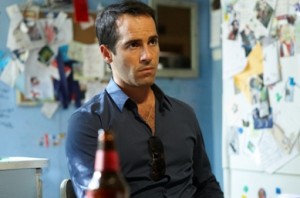Suburban Mayhem: Adapting The Slap
 Originally a book by Christos Tsiolkas, The Slap has been adapted into an eight part mini series.
Georgina Pearson spoke to its creators about the challenge of adaptation.
Originally a book by Christos Tsiolkas, The Slap has been adapted into an eight part mini series.
Georgina Pearson spoke to its creators about the challenge of adaptation.
The visual translation of print to film is a familiar road, one well travelled by Hollywood. However; delivering a virtually seamless translation requires a tad more finesse – and is an art now increasingly rare. Even more so, if the print in question is a critically acclaimed, award winning novel of international popularity.
Christos Tsiolkas’s The Slap is one such rarity. Exploring the morality of middle class Australia, The Slap follows the repercussions of a single event at a family barbeque – told from the viewpoint of eight different characters.
First published in 2008 with more than 800,000 copies sold worldwide, Tsiolkas’s controversial sixth offering has served to ignite discussion around the globe. Touching on several contentious issues including infidelity, racism and family ties, it examines the consequence of slapping another man’s child – and provides a unique window into multicultural suburban Australia. It was precisely this window that attracted director/producer, Matchbox Picture’s Tony Ayres to the project.


Found Ep 1 to be comically melodramatic, myself.